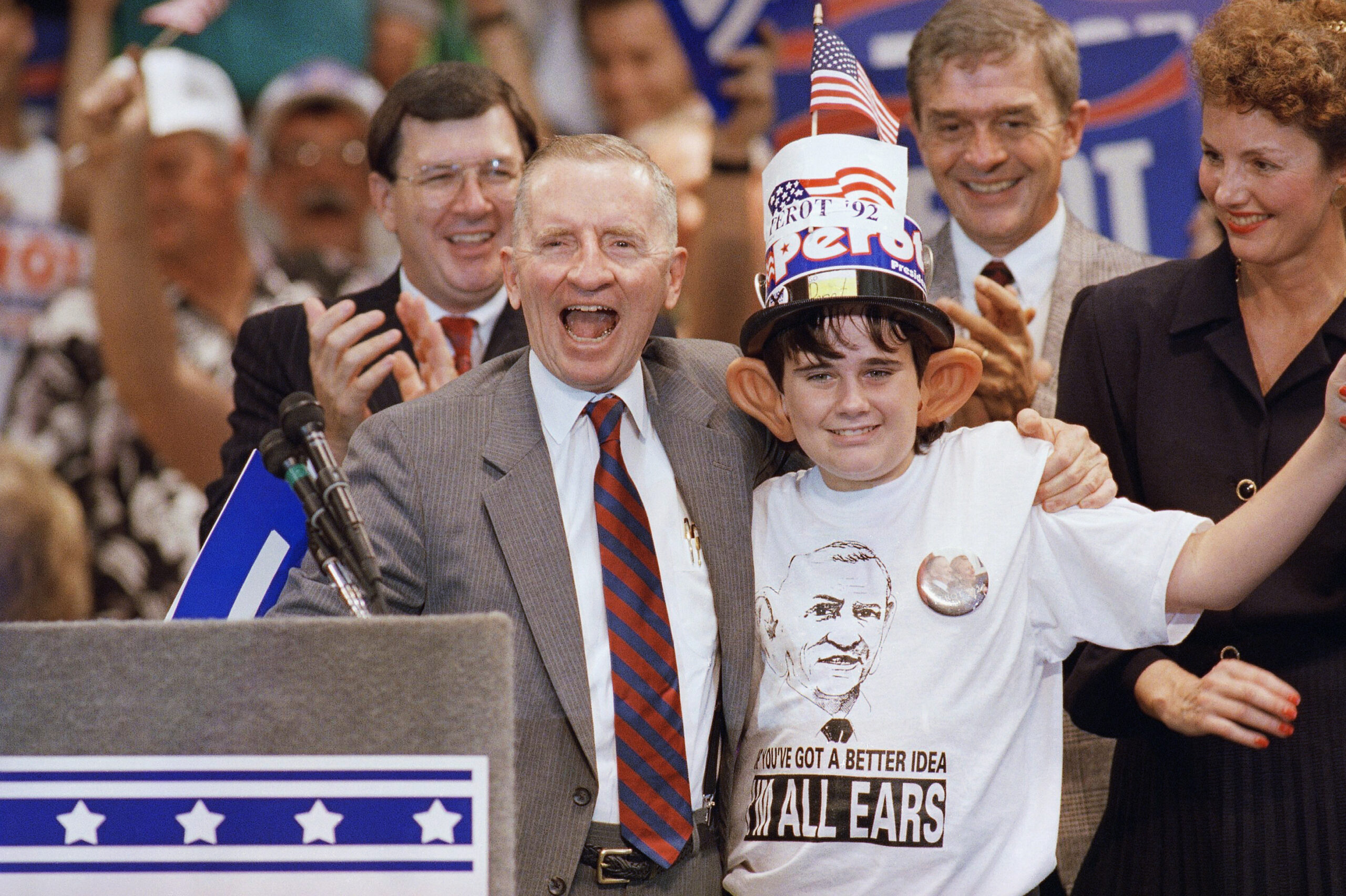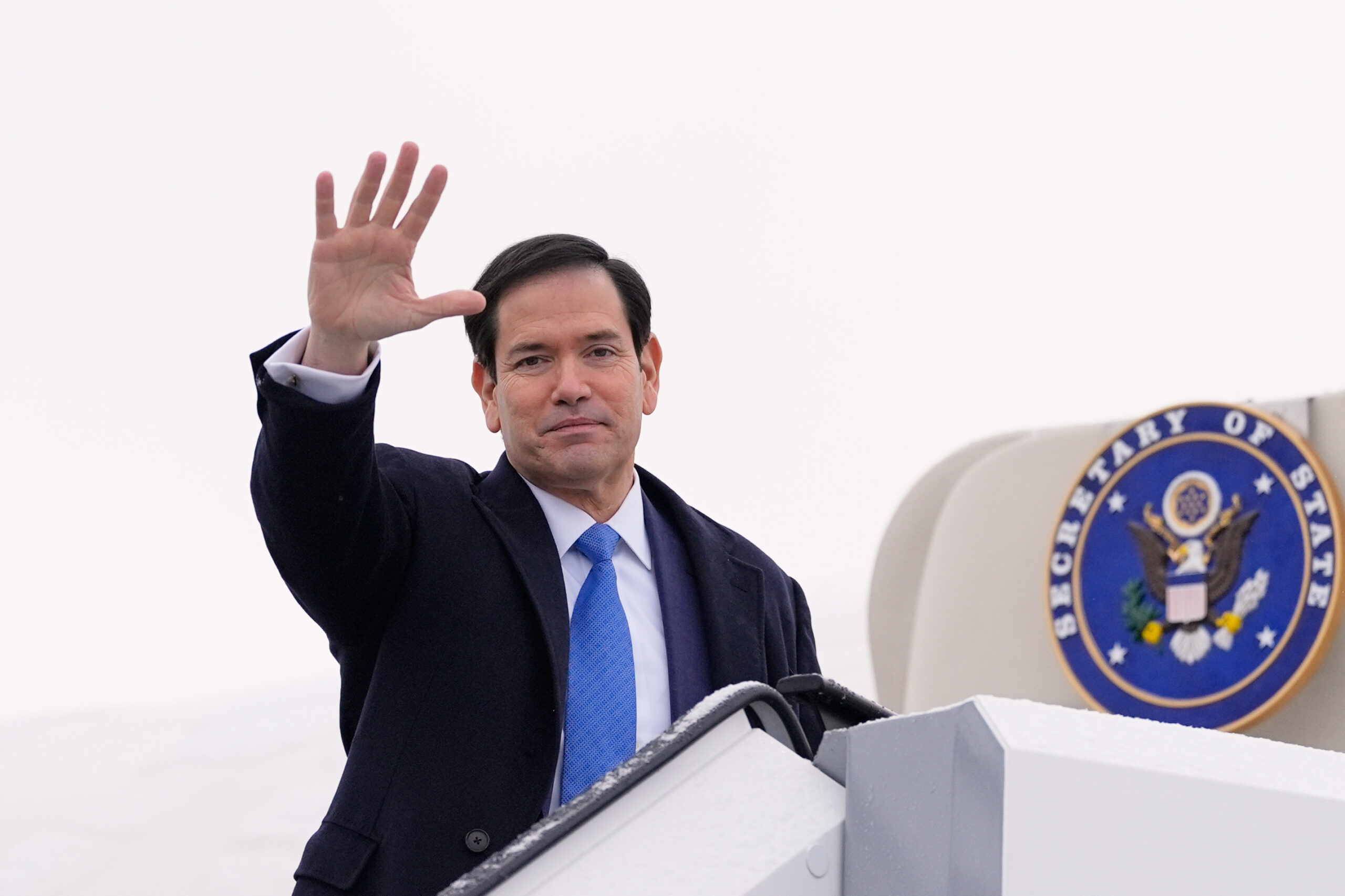A new third party created by a billionaire, born out of frustration with the ballooning federal deficit and the two-party system. We’re talking about Ross Perot’s Reform Party, of course.
The parallels to Elon Musk and his America Party are obvious, but Musk may be lucky to get as far as Perot did. The Texas businessman won roughly 19 percent of the popular vote when he ran for president in 1992 — the most successful bid by any independent candidate in modern history — and took in nearly 8.5 percent in 1996. His Reform Party became, at least briefly, a real political force to be reckoned with, even catapultinga former professional wrestler into a governor’s office. But it was ultimately no match for the U.S.’s two-party system, and its influence fizzled out by the 21st century.
Could Musk succeed where Perot didn’t? We asked Russell Verney, a top adviser to Perot’s presidential campaigns and a former chair of the Reform Party — and Verney isn’t optimistic.
“It’s not something you do by posting on Twitter that you have a political party. It takes a lot more work than that,” Verney said in an interview with POLITICO Magazine.
Still, Verney said Musk’s efforts might still have an impact. Despite Perot’s defeat, his clamoring for deficit reduction reshaped the political debate and fueled President Bill Clinton’s push for a balanced budget. Musk could have similar sway, if he puts in the work.
“My basic advice is: Go to rehab and then focus on creating a new political party from a position of seriousness, not of anger, not of retribution, not of retaliation,” Verney said.
This conversation has been edited for length and clarity.
What do you think of Elon Musk’s third-party bid? What do you think Ross Perot would have thought of it?
Well, I think his use of the term third party is tremendously vague. It’s not what he’s doing: He’s not creating a political party, he’s creating a political committee that is going to encourage people to run and may make independent expenditures on their behalf.
A political party essentially has a big structure, and the most important asset of a political body is ballot access — in other words, the right to place the name of its candidate on the general election ballot. Musk doesn’t have that. He may assist people to get ballot access, but the candidates themselves are going to have to get the ballot access.
Now whether or not it can be effective, absolutely, third parties don’t have to win to be effective. Ross Perot in 1992 took a very obscure issue — deficit spending and accumulated national debt — and explained it to the American public. And for the first time since the Eisenhower administration, in 1998, Bill Clinton actually balanced the budget for two years, and it hasn’t been balanced since then. That was a result of the support that Perot got.
Once somebody starts showing voters support their position, the Republicans and Democrats want to co-opt those voters. They want to attract them into their party to support their re-election, because all candidates really stand for is elections. It’s not about progress. It’s not about making America great. It’s just about elections. They want to attract anybody who voted for an alternative candidate to support them, to help them win the election. So if Elon Musk’s candidates start coming up with a coherent message and start showing some support, it’s going to have a big impact on both the Republican and Democratic Party.
A third political party is a lot of work. It’s a major undertaking, and it can’t be done overnight, because you can’t even create — officially create — a legitimate political party until after an election. You have to actually get votes in many states in order to obtain and retain ballot access. And after you’ve gotten ballot access in enough states, you can petition the Federal Election Commission to become a national political party. The Reform Party did that. The Libertarian Party did that. There are lots of others that have tried and failed.
It’s not something you do by posting on Twitter that you have a political party. It takes a lot more work than that. So he has expressed an idea. He’s starting from a very basic position, and it’s going to be a long, long time before he actually has a competitive political party. He can form alliances with other groups out there, and impact certain issues, certain specific elections, but not compete nationally. But that doesn’t mean he won’t have an impact.
Perot was the most successful third-party candidate in modern history. You helped run his campaigns and build the Reform Party. What advice do you have for Musk when it comes to building a new party?
My basic advice is: Go to rehab and then focus on creating a new political party from a position of seriousness, not of anger, not of retribution, not of retaliation. It’s a very significant mission. You’re going to be asking millions of people to volunteer, to assist you to accomplish that and to support your activities, and they need a serious leader, not somebody who’s flamboyant.
What are some current issues that a third party should focus on? Where do you see an opportunity for a third party in terms of its platform?
In 1992, when Ross Perot first ran, there was a desire for change from business as usual, and it’s only grown since then. In the 2016 election, the people that took a chance on Donald Trump were looking for change from business as usual. I don’t think they anticipated the dimension of the change they were going to get, and maybe they’re happy with it. I don’t know. I don’t do polling. I don’t know who they are, but it seems to me that the system has gotten worse, not better.
Inflation is likely to occur as a result of tariffs. There’s chaos that’s being created in municipalities like Los Angeles over this absurd mission to deport people who’ve been living here for years. We could’ve solved the immigration problem, not just with the bill that was in the last session of Congress, any time in the last couple of decades, we could have solved it, except that Democrats like to create future voters, and Republicans like cheap labor. And you see with President Trump, he jumped out there and exempted cheap labor. He didn’t want them going after the meat processing and chicken processing farms and agriculture. He wanted to keep the cheap labor. So “let’s get rid of them” — what is it we’re after? Are we after the criminals? Are we after everybody with brown skin and in between? I think that’s confusing the public, and there will be more discontent as you get towards the next election.
The atmosphere for a third party just continues to grow, but it’s got to be a sensible, focused, responsible effort to create a political party
What did the Reform Party’s supporter base look like? Do you think Elon Musk’s party will attract a similar crowd?
The Reform Party essentially said that we want fiscal responsibility and government reform, and not go down the rabbit holes of social issues, cultural issues. And we set out 10 principles that were very clear and easily understood, and we just kept a narrow focus on it.
That’s pretty much where the focus can be going forward. Certainly fiscal issues, because this budget bill that just passed, it’s going to add $4 trillion to the national debt, which then increases the cost of our debt service, which is money that doesn’t provide a minute of education, a mile of a highway or a single soldier to defend the nation. It’s wasted money. We’ve got to get that under control. That will be an issue, and government reform issues can still be very valuable. I think, after some of the devastation we’ve seen in government agencies in the first six months of this year, there’s a whole lot of rebuilding to be done.
The public is very welcoming of something that’s changed from business as usual, whether it’s the Democrats or Republicans, it doesn’t matter. What they want is something that’s more substantive and less performative. And I think there’s very fertile ground there for that.
You mentioned explicitly that the Reform Party tried to avoid social and cultural issues. Do you think that’s possible for a third party in our current political climate?
Absolutely. Basically cultural issues are fundraising issues, not governing issues. They’re all about raising funds for people on each side of a cultural issue, but they’re not about governing.
How many years was Roe v. Wade in existence, and every year, both sides raised tons of money off of it, but nobody ever made a serious attempt to codify it as a law. So now maybe they will make good, serious efforts, but again, it will become a social issue that is basically a fundraising drive, regardless of whether or not it ever is changed.
We haven’t seen third parties find much success since the Reform Party in the 1990s. Why is that?
All political parties have internal dynamics — some inhibit their growth, some can help their growth — but the biggest impediment to a third party is ballot access.
Obtaining the right to place your candidate on virtually all state ballots all across the country is a humongous job. Once you’ve gotten it, you then have to maintain it, usually every four years in many states. This keeps the focus of the third party — political parties that are just starting — simply on obtaining the right to place their candidate on the ballot, as opposed to supporting competitive candidates against the other parties. They exhaust themselves both financially and resource-wise with ballot access. So they have little opportunity to accomplish any goals in the early stages, which would attract more support.
There have been growing concerns about billionaires getting involved in politics and using their money to amass more power and influence — a criticism you and Perot faced when he ran for president. How do you respond to those critiques, especially in this day and age?
When Donald Trump ran for president in 2016, a lot of people took the position that it’s not a big deal having a billionaire run, because they can’t be corrupted. They’re too rich. Well, we don’t see that today with all those cryptocurrencies and airplanes for $400 million and construction deals in foreign countries. We’re seeing that maybe that’s not so true. Maybe you can influence a billionaire.
I think there are a lot of billionaires out there that have an eye on “Can I contribute? I’ve been very successful in private industry. Can I bring that to the public sector and have an impact for good?” And it depends on whether or not they’ve got a social conscience, whether or not they’ve been working over the years on social issues for the betterment of society, as opposed to just working for themselves. A guy like Ross Perot, he was a very successful businessman. But at the same time, he was very engaged in government. He headed up a task force in Texas for reforming education. He was involved in the war on drugs. He was one of the first individuals nationwide to assist in fundraising for AIDS research, and he championed veterans’ issues. He supported the military in many, many respects. He had a long history of social engagement for the public benefit. That’s a distinction between a billionaire who has just been amassing riches for himself and not contributing to the social community.
Would you say Elon Musk has that social conscience? Is it a good thing that a billionaire like Elon Musk is jumping to create his own third party?
I haven’t seen anything that Elon Musk has contributed to a social environment. He’s contributed to those companies he’s purchased, but I don’t know that he’s actually assisting people.
Is there anything you wish you had done differently with the Reform Party?
I wish we won!
With the Perot campaign, clearly there was one thing. In 1992 there was a debate: George H.W. Bush, Bill Clinton and Ross Perot debated, and over and over again in those debates, you’ll hear George Bush and Bill Clinton each saying, “I agree with Mr. Perot, and we should do that.” So in other words, “He’s right, but he can’t win. I’m the one closest to him. We can win.” And it became a vote for Perot is a wasted vote because he can’t win.
The exit polling that was done in the ‘92 election — an analysis of it that was done by Dr. Gordon Black and his son found that if people thought Perot could win, he could have won that election.
So the “wasted vote” thing, we didn’t pay a whole lot of attention to it in the campaign. We were talking about issues. If I have a regret, it’s that we should have done something to counter the “wasted vote” attacks. But other than that, no, the Reform Party was a great adventure, and I’m glad to have been a part of it and created some history.
How do you convince people that a third-party vote isn’t a wasted vote, though? That’s been a constant hurdle for any independent candidate.
You’ve got to reverse the attack that is put on candidates that come out of the private sector, that you have no experience. Yeah, we have no experience running up $30 trillion of debt. We have no experience destroying our education system, and go on through all the issues that are out there. So it’s not a wasted vote for me. It’s a wasted vote for them, unless you’re perfectly happy with the country that’s heading in the wrong direction.
How do you keep the momentum going with third parties? What can Musk and his party do to remain relevant election after election?
Well, that’s a big question, because what’s going to happen is Elon Musk has very, very deep pockets. Assuming that he’s willing to bankroll a lot of this effort to create the third party, every con-person in America is going to be latching onto that. They see the money, they go for it. It’s going to be tough to weed through the self-promoters. He’s going to wind up with candidates that are not credible, that are using him and his organization. He’s going to wind up with competition within his new organization: Let’s say two people want to run for Congress in a specific district, how do they decide which one? No matter how they do it, somebody’s going to be a loser, and that loser is going to have sore feelings. They may create problems, and it becomes difficult.
It’s worth the effort, though. It’s important to have people trying to build. Everyone can make a difference, to some extent. It continues to pave the way for future third parties to grow.




